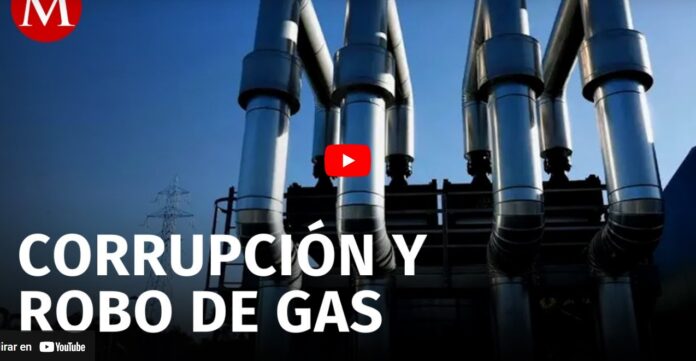Republican U.S. Senator Dan Sullivan introduced the bill to ban exports of natural gas produced or refined in the United States from terminals in Mexico, due to concerns about allegations of corruption and fuel theft.
The senator said that natural gas produced or refined in the United States must be exported from terminals in that country.
Corrupt Mexico?
This is because of the economic and national security concerns associated with exporting that gas from countries “with corrupt governments like Mexico.”
“Notwithstanding any other provision of law, no person shall export natural gas or gas refined in the United States to a foreign country with the intention of subsequently exporting that natural gas through a foreign liquefied natural gas terminal,” the bill states.
According to Sullivan’s proposal, Mexico ranks 126th out of 180 countries in Transparency International’s 2023 Corruption Perceptions Index, where corruption permeates the political and economic segments of society in Mexico
“The current executive administration in Mexico has eroded autonomy and has publicly questioned the value of specific antitrust and energy regulators and has proposed dissolving some of them to reduce costs. In addition, corruption continues to affect the equitable application of some regulations,” it highlights.
Fuel theft
On this subject, Sullivan points out that the corruption that permeates Mexico is illustrated by the rates of this crime and recovers statements from former president, Andrés Manuel López Obrador, who has suggested up to four-fifths of fuel theft.
The above is orchestrated by elements of the Mexican state and fuel thieves depend on complicit politicians, police and people with privileged information from Petróleos Mexicanos (Pemex).
“Employees of the Mexican state oil company, Pemex, have been threatened, kidnapped and tortured by criminal cartels in Mexico for providing information about oil pipelines,” he said.
It was highlighted that Pemex faces frequent accusations of corruption.
In 2018, former Pemex director Adrian Lajous Vargas stated that corruption was rampant everywhere, in all areas and at all levels of the hierarchy.
Other factors he points to for carrying out this ban are the centralization of government power through the Judicial Reform, since the politicization of the judiciary in Mexico endangers the principle of impartiality and casts doubt on whether laws will be applied without favor, contracts will be honored and commercial disputes will be resolved fairly.
Likewise, the bill warned of the violation of the energy commitments of the USMCA by granting Mexican state energy companies priority over private investors, including the adoption of several measures to favor Pemex and the Federal Electricity Commission (CFE); erecting new barriers to foreign trade and foreign investment.
The project explains that the export of natural gas that is produced or refined in the United States and exported to terminals located in Mexico may not be in the national interest of the United States; in addition to being a commercial and national security concern for that country.
Source: milenio






